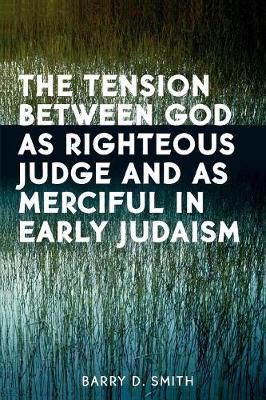In recent years, the scholarly consensus has emerged that early Judaism should no longer be classified as a religion of legalistic works on righteousness, but rather defined primarily by God's covenant with Israel. In this work, it is argued, instead, that there is actually a tension in early Judaism between God as righteous judge and as merciful. As E. Sjoeberg maintained in his Gott und Sunder im palastinischen Judentum, in the sources used for a reconstruction of early Judaism, there are two mutually exclusive ways in which God is said to relate to human beings. First, God as righteous judge deals with human beings as they deserve. They are assumed to be morally free and responsible, and God judges and recompenses them in history and eschatologically. Not only are the wicked punished for their sins, but the righteous are also rewarded for their obedience. And second, God as merciful does not deal with human beings as they deserve. Rather, he removes the guilt resulting from disobedience to the Law, sometimes on the simple condition of repentance. This means that a person can escape the consequences of disobedience. The understanding of God in the sources vacillates between God as righteous judge and God as merciful, without coming down definitively on one side to the exclusion of the other.
- ISBN10 076183088X
- ISBN13 9780761830887
- Publish Date 4 June 2005
- Publish Status Active
- Publish Country US
- Imprint University Press of America
- Format Paperback
- Pages 402
- Language English
